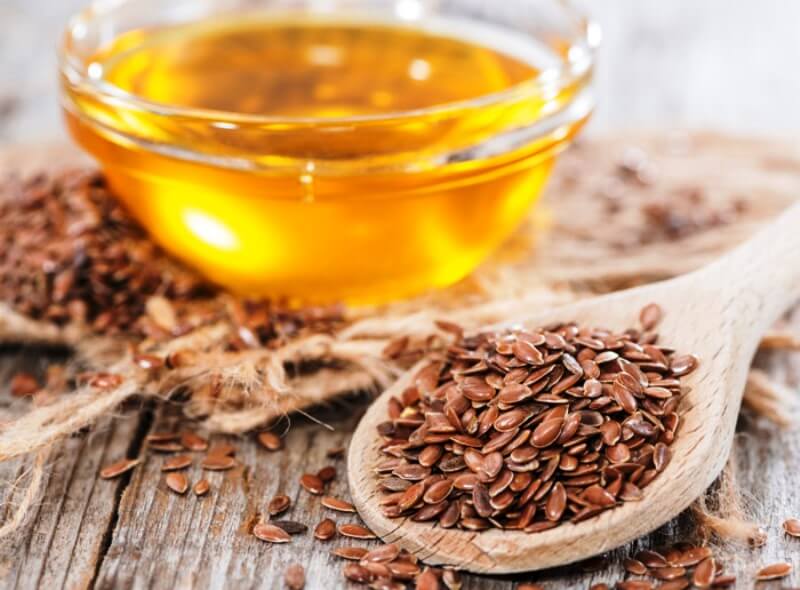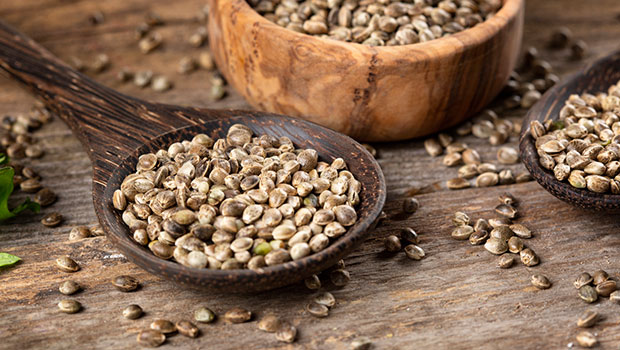Fish oil is an increasingly popular dietary supplement that has become a go-to source of omega-3 fatty acids for many health-conscious individuals. However, fish oil isn’t the only way to get these essential nutrients.
In this article, we discuss alternative sources of omega-3 fatty acids that can provide similar health benefits as fish oil. We explore the science behind plant-based and animal-based sources of omega-3s, as well as the environmental considerations of using these sources instead of fish oil.
Table of Contents
Flaxseed oil
Flaxseed oil is an excellent alternative to fish oil. It is a rich source of omega-3 fatty acids, containing both alpha-linolenic acid (ALA) and linoleic acid (LA). Studies have shown that flaxseed oil contains higher levels of ALA than fish oil, making it a great natural source for essential fatty acids. Additionally, the oil is known for its anti-inflammatory properties, helping to reduce inflammation and ease pain associated with joint and muscle disorders. Flaxseed oil also supports healthy skin, hair and nails.

Chia seeds
Chia seeds are another popular alternative to fish oil. They are packed with fiber, healthy fats, protein, vitamins and minerals. Chia seeds are an excellent source of omega-3 fatty acids, providing more than twice as much as salmon. In addition to their high content of omega-3s, chia seeds also contain antioxidants which help protect cells from damage and reduce inflammation. Research has found that chia can lower cholesterol levels, reduce blood pressure and improve overall heart health.
Hemp seeds
Hemp seeds are a great alternative to fish oil, offering many health benefits. They are rich in Omega-3 and Omega-6 fatty acids and essential vitamins and minerals such as folate, phosphorus, magnesium, zinc, and iron. They are also high in fiber and protein, making them ideal for promoting a healthy heart and gut. As an added bonus, hemp seeds regularly contain over 30% oil, giving them a high fat content comparable to fish oil when providing essential fatty acids.

Walnuts
Like hemp seeds, walnuts contain omega-3 fatty acids and other nutrients, including antioxidants, protein, fiber, and polyunsaturated fats. Additionally, walnuts are cholesterol-free and low in saturated fats, making them a safe and nutritious choice for those looking to reduce their risk of cardiovascular disease. Walnuts have also been linked to improved brain health and may even help reduce the risk of certain types of cancer.
Algal oil
Algal oil is an alternative to fish oil derived from marine algae, a type of microalgae. It has eicosapentaenoic acid (EPA) and docosahexaenoic acid (DHA) – with numerous health benefits. Algal oil also contains a higher concentration of DHA than other plant sources, making it an ideal source for vegetarians or people with seafood allergies. Additionally, algal oil has been shown to reduce the risk of cardiovascular disease, inflammation, and other health conditions.
Krill oil
It is derived from krill, a shrimp-like crustacean in cold ocean waters. Unlike other sources of omega-3 fatty acids, krill oil contains additional antioxidants, vitamins, and minerals that may provide additional health benefits. Recent studies suggest that krill oil may have a greater bioavailability than fish oil, meaning that more beneficial compounds are available for absorption by the body. Krill oil is becoming an increasingly popular supplement due to its ability to provide significant health benefits while preserving our oceans’ health.
Sardines
While sardines may not provide the same omega-3s as fish oil, they still offer a substantial amount, along with important vitamins and minerals such as iron, calcium, selenium, and phosphorous. They are also low in mercury and toxins, making them an ideal choice for people looking for a healthier option. Additionally, sardines can be used to make various delicious dishes and snacks, adding to their appeal as a nutritious source of omega-3 fats.
Mackerel
Mackerel is another small, oily fish filled with healthy fats and nutrients. It has a strong, distinct flavor and is often used in curries or smoked. Mackerel is a great omega 3 fatty acids source, essential for maintaining cardiovascular health and improving cognitive function. Additionally, mackerel is low in mercury levels, making it technically safe for pregnant women to eat. Overall, mackerel provides an alternative to fish oil but it’s important to note that the flavor may be too intense for some.
Cod liver oil
Cod liver oil has been used as a nutritional supplement for centuries and is derived from the livers of cod fish. It can improve cardiovascular health, brain function and overall wellbeing. Additionally, it’s high in vitamins A and D, essential for immune system support and bone health. The oil also contains high levels of EPA and DHA which reduce inflammation and may help to improve cognitive functioning and reduce symptoms of depression or anxiety.

Tuna
Tuna is an excellent source of lean protein and essential nutrients like omega-3 fatty acids, selenium, and vitamin B12. Eating tuna provides various health benefits, including reduced inflammation, improved heart health, increased energy levels, and decreased risk of chronic diseases. It is also a rich source of docosahexaenoic acid (DHA), which plays an important role in neurological and visual development. Furthermore, tuna is low in calories and saturated fat and relatively easy to prepare in various ways.
Final words
In conclusion, several alternatives to fish oil can provide similar health benefits. These alternatives include flaxseed oil, chia seeds, hemp seeds, walnuts, algal oil, krill oil, sardines, mackerel, cod liver oil, and tuna. Each option has its unique nutritional properties and can be a great addition to a balanced diet.
Flaxseed oil, chia seeds, and hemp seeds are great omega-3 fatty acids, fiber, and protein sources. Walnuts are rich in omega-3s and antioxidants, while algal and krill oil are great alternatives for those who prefer not to consume animal products. Sardines, mackerel, and tuna are also excellent sources of omega-3s and other important nutrients like vitamin D and selenium.
Overall, incorporating these alternatives into your diet can help you reap the health benefits of omega-3 fatty acids without relying on fish oil. Talking to your healthcare provider or a registered dietitian before making any significant dietary changes is essential. With a little research and experimentation, you can find the best alternative for you and your lifestyle.







